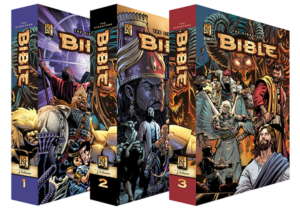
There are many different angles from which to consider comic book Bibles and plenty of excellent scholarship already shared on Sacred and Sequential. I don’t intend to go over this ground again but instead to consider comic Bibles from the perspective of Religious Education pedagogy; what might educators need to consider before they bring comic book Bibles into the classroom as materials for study and learning. I am not concerned therefore, with comics as tools for evangelising or as supposed miracle cures for reluctant readers. Instead I am coming from the perspective of English mainstream education where Religious Education is a legal requirement. Of course, this is a situation that is not always present in other countries but hopefully I can stir up useful questions and pedagogical judgements that should surround our classroom materials used by all students, regardless of the medium. Or encourage you to think about using comics in your classrooms, because I really think they are a fantastic, much under-appreciated resource!
Continue reading When it comes to the classroom, not all comic Bibles are created equal
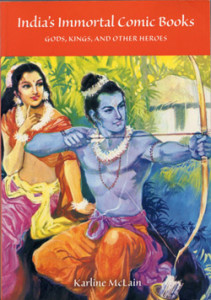 Based out of the University of Florida’s Comics Studies track within the the Department of English,
Based out of the University of Florida’s Comics Studies track within the the Department of English, 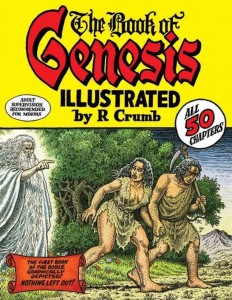
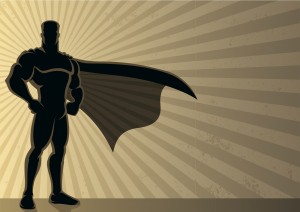
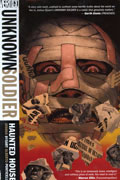 Though the series was recently canceled by DC Comics, the Unknown Soldier has once again been nominated for an Eisner Award.
Though the series was recently canceled by DC Comics, the Unknown Soldier has once again been nominated for an Eisner Award.